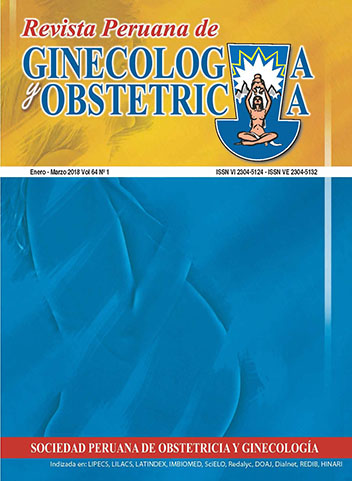Therapeutic management of climacteric symptomatology
DOI:
https://doi.org/10.31403/rpgo.v64i2057Abstract
Menopause has been defined by the International Menopause Society as the permanent cessation of menstruation in women, an event determined by the decrease in hormonal production. On one hand, the associated symptomatology interferes with the quality of life of the woman, and includes vasomotor and psychic symptoms and urogenital atrophy; on the other hand, metabolic changes that imply an increase in the risk of chronic diseases such as cardiovascular disease and osteoporosis. With the progressive increase in life expectancy, the older groups begin to be an important part of the world population. Therefore, the clinical management of the postmenopause becomes a relevant public health problem. Its objective is to improve the quality of life and reduce the risk of chronic diseases. The Menopause Rating Scale (MRS) is a scale to assess the existence and intensity of symptoms. Cardiovascular risk and osteoporosis should also be assessed. Treatment includes improving lifestyle, the use of hormonal therapy and therapies for comorbidities. These guidelines are intended to be an aid to the physician when evaluating a woman in this period of life. They have been based mainly on the “Technical Guidelines for the comprehensive care of women of climacteric age at the primary level of the health network” of the Women’s Health Program, Ministry of Health, Chile. However, they are only orientations. Every therapeutic decision should be individualized according to the particular characteristics of each patient.Downloads
Download data is not yet available.
Downloads
Published
2018-04-12
How to Cite
Monsalve, C., Reyes, V., Parra, J., & Chea, R. (2018). Therapeutic management of climacteric symptomatology. The Peruvian Journal of Gynecology and Obstetrics, 64(1), 43–50. https://doi.org/10.31403/rpgo.v64i2057
Issue
Section
Simposio: Manejo terapéutico en el climaterio y menopausia, evidencias actuales
















